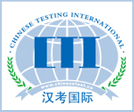1. Engage Deeply with the Basics of Business Chinese
Core Business Terms
Focus on mastering vocabulary specific to your industry. Create a comprehensive list of essential terms and phrases, including:
Cultural Competency
Equally important is grasping the nuances of Chinese business culture. Make sure to understand:
By prioritizing these foundational terms, you'll enhance your ability to communicate effectively with clients and partners, showcasing your professionalism. If you're struggling with the basics of Business Chinese, take advantage of our limited-time offer at eChineseLearning! Register now for a free one-on-one lesson, and you’ll receive a personalized study plan along with tailored business learning materials to help you excel.
2. Immerse Yourself in the Language
To truly grasp Business Chinese, immerse yourself in the language as much as possible. Start by consuming content relevant to your field:
Watch Chinese Business News: Tune into channels like"央视财经频道 (yāng shì cái jīng pín dào), CCTV Finance"or online platforms that provide insights into current market trends and economic policies. This not only builds your vocabulary but also familiarizes you with industry-specific contexts.
If you have difficulties understanding and using Business Chinese correctly, our teachers at eChineseLearning can save you time by recommending tailored reading materials that align with your industry. This ensures you learn relevant vocabulary and concepts, and you can focus on specific scenarios in Business Chinese based on your needs, helping you improve efficiently.
3. Practice Speaking with Native Speakers
Practicing your language skills in real-world contexts is crucial. Consider these approaches:
4. Overcome Common Learning Obstacles
Mastering Business Chinese involves overcoming challenges like pronunciation and vocabulary retention. Here are effective strategies to tackle these issues:
5. Establish a Consistent Study Routine
Effective Time Management
Balancing your studies with personal and professional commitments is essential for progress. Consider these strategies:
Commit to Daily Practice
Aim for daily engagement with the language, even if it’s just 15-30 minutes. Incorporate various activities to enhance your skills:
By implementing these strategies, you can significantly accelerate your learning of Business Chinese. While there are various approaches to mastering the language, seeking specialized resources and support can greatly enhance your experience. For those looking for a comprehensive and flexible learning solution, eChineseLearning offers tailored one-on-one courses that align with your individual needs, ensuring you receive the guidance necessary to achieve your goals.
Core Business Terms
Focus on mastering vocabulary specific to your industry. Create a comprehensive list of essential terms and phrases, including:
- Negotiation terms: Understand key phrases that facilitate discussions.
- Financial vocabulary: Familiarize yourself with terms related to finance and accounting.
- Marketing jargon: Learn the language used in marketing strategies and campaigns.
Cultural Competency
Equally important is grasping the nuances of Chinese business culture. Make sure to understand:
- Business etiquette: Know the dos and don’ts of professional interactions.
- Common negotiation practices: Familiarize yourself with strategies that are commonly used in negotiations.
- Cultural subtleties: Be aware of cultural references that may influence communication.
By prioritizing these foundational terms, you'll enhance your ability to communicate effectively with clients and partners, showcasing your professionalism. If you're struggling with the basics of Business Chinese, take advantage of our limited-time offer at eChineseLearning! Register now for a free one-on-one lesson, and you’ll receive a personalized study plan along with tailored business learning materials to help you excel.
2. Immerse Yourself in the Language
To truly grasp Business Chinese, immerse yourself in the language as much as possible. Start by consuming content relevant to your field:
Watch Chinese Business News: Tune into channels like"央视财经频道 (yāng shì cái jīng pín dào), CCTV Finance"or online platforms that provide insights into current market trends and economic policies. This not only builds your vocabulary but also familiarizes you with industry-specific contexts.
Read Business Articles: Engage with business publications like "中国日报 (zhōng guó rì bào), China Daily" or "经济观察网 (jīng jì guān chá wǎng), The Economic Observer". Take notes on new terms and phrases, and try to incorporate them into your daily life to solidify your understanding.
If you have difficulties understanding and using Business Chinese correctly, our teachers at eChineseLearning can save you time by recommending tailored reading materials that align with your industry. This ensures you learn relevant vocabulary and concepts, and you can focus on specific scenarios in Business Chinese based on your needs, helping you improve efficiently.
3. Practice Speaking with Native Speakers
Practicing your language skills in real-world contexts is crucial. Consider these approaches:
- Professional Events: Attend industry conferences, seminars, and workshops where you can network with other professionals and practice your language skills.
- Language Exchanges: Connect with native speakers through informal meetups or online platforms to improve your conversational abilities.
- One-on-One Tutoring at eChineseLearning: Our experienced tutors provide targeted speaking practice, simulating real-world business scenarios. This interactive approach ensures you gain confidence and fluency in professional settings, with immediate feedback to correct any mistakes.
4. Overcome Common Learning Obstacles
Mastering Business Chinese involves overcoming challenges like pronunciation and vocabulary retention. Here are effective strategies to tackle these issues:
- Regular Pronunciation Practice: Record yourself speaking and compare your pronunciation with native speakers. Using pronunciation apps can provide valuable feedback. Engaging with a tutor can further refine your accent through targeted exercises and real-time corrections.
- Vocabulary Retention Techniques: Employ spaced repetition systems (SRS) to enhance your memory of key terms. Regularly reviewing vocabulary in context, such as through conversations or written exercises, can reinforce your learning and help you retain essential phrases.
- Interactive Practice: Role-playing exercises can simulate real business interactions, allowing you to practice vocabulary and phrases in a realistic setting. This not only reinforces your learning but also boosts your confidence in using the language.
- Consistent Review: Set aside time each week for reviewing previously learned material. Keeping a structured review plan can ensure that you reinforce what you’ve learned effectively, helping you track your progress over time.
5. Establish a Consistent Study Routine
Effective Time Management
Balancing your studies with personal and professional commitments is essential for progress. Consider these strategies:
- Set Dedicated Study Hours: Allocate specific times each week for focused study sessions. Consistency helps reinforce learning and creates a habit.
- Use Planning Tools: Utilize planners or apps to track your progress and schedule study sessions. This not only keeps you organized but also helps you stay accountable.
Commit to Daily Practice
Aim for daily engagement with the language, even if it’s just 15-30 minutes. Incorporate various activities to enhance your skills:
- Speaking and Listening: Practice conversations with a language partner or tutor. This interactive practice is crucial for building fluency and confidence.
- Reading and Writing: Explore business articles or write summaries to reinforce your learning. This not only improves comprehension but also helps you internalize vocabulary in context.
By implementing these strategies, you can significantly accelerate your learning of Business Chinese. While there are various approaches to mastering the language, seeking specialized resources and support can greatly enhance your experience. For those looking for a comprehensive and flexible learning solution, eChineseLearning offers tailored one-on-one courses that align with your individual needs, ensuring you receive the guidance necessary to achieve your goals.
















 京公网安备
京公网安备